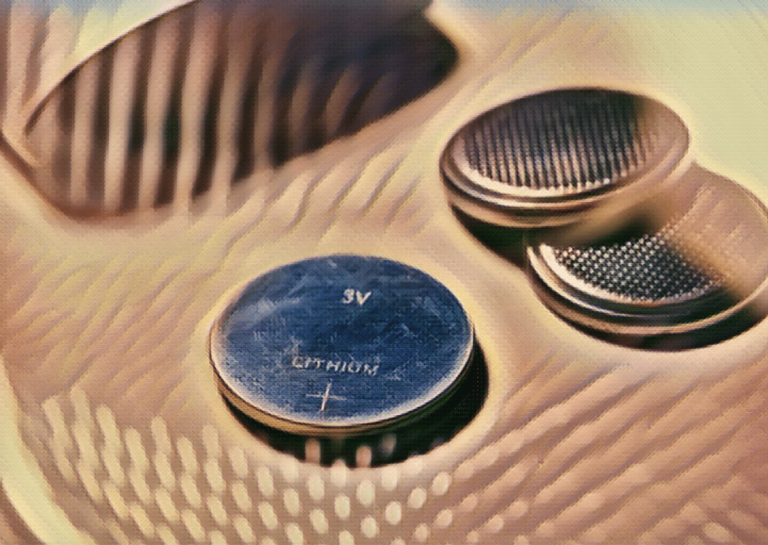In the first seven months of the pandemic, ER visits related to button batteries rose 93 percent among young children. The chemical burns from the batteries can happen in as little as two hours and are lethal. Here is what you need to know about button batteries, what to do if your child swallows one, and how we can prevent these incidents moving forward.
Earlier this week, NBC’s Catie Beck interviewed Trista Hamsmith, who has been advocating for safer button batteries after the death of her 17-month-old daughter Reese. Each year, more than 2,500 young children accidentally swallow a button battery. Like many parents, Trista was unaware of the danger of button batteries, due to the lack of information on the topic.
In addition to remote controls, button batteries are found in household items such as thermometers, calculators, watches, and even kids’ toys. Button batteries are round and smaller than other batteries, making them easier for children to swallow. Dr. Ian N. Jacobs, Director of the Center for Pediatric Airway Disorders at Children’s Hospital of Philadelphia says, “since serious damage can occur within two hours of ingesting a battery, the interval between ingestion and removal is a critical time to act in order to reduce esophageal injury.”
Children who have swallowed a button battery may present symptoms including, sore throat, cough, fever, difficulty swallowing, poor oral intake, or noisy breathing. This can cause severe complications like esophageal perforation, vocal cord paralysis, and erosion into the airway or major blood vessels. The longer it takes for the battery to be removed, the higher the risk for these children, particularly those without access to hospitals with specialized anesthesiologists and endoscopists experienced in removing foreign objects.
If your child ingests a button battery, seek medical help immediately. Experts recommend giving honey to your child on the way to the ER. According to poison control, children over 1 year old should have two teaspoons of honey every 10 minutes until they get to the emergency room. When swallowed, button batteries produce a chemical reaction that can cause serious tissue damage and can be fatal, according to one study. Doctors and researchers who are members of the AAP-affiliated National Button Battery Task Force conducted a study that found that honey and sucralfate were able to neutralize the pH to acceptable levels.
In an interview with NBC, Dr. Kris Jatana explained that honey helps to reduce the rate of injury the battery causes once it’s lodged in a child’s esophagus. Honey not only assists to neutralize the injury but also creates a physical barrier between the tissue and battery to slow the rate of further injury, which could be life-saving. It should be noted that children under 1 year typically are not given honey due to a small risk of infant botulism.
Trista’s nonprofit Reese’s Purpose is now lobbying lawmakers for better safety standards, mandating screws for all products that use button batteries. Parents can help prevent ingestions by making sure battery compartments are secure and spare batteries are kept out of children’s reach. Parents and advocates can also share information on the dangers of button batteries with other parents or caregivers.

